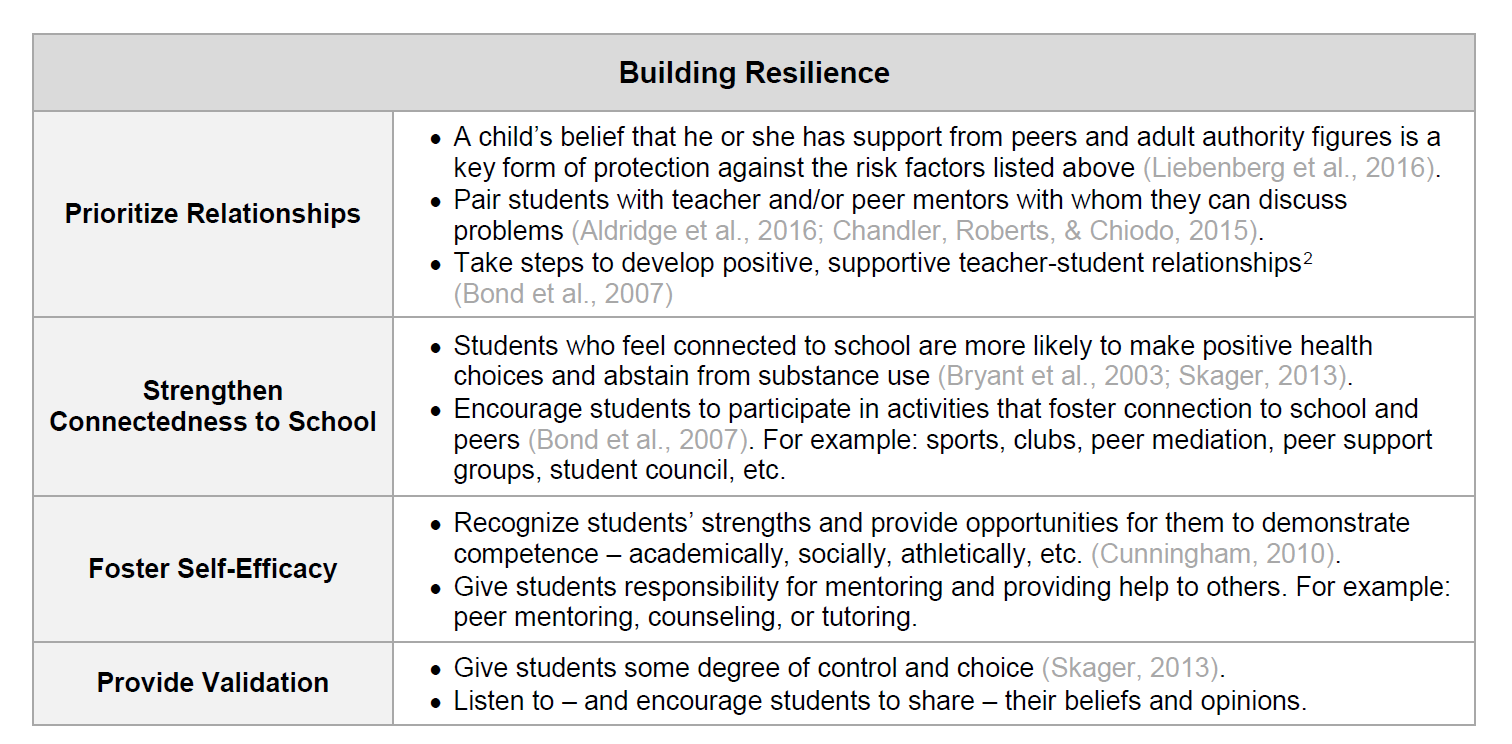What is Resiliency?
Resiliency is the ability to overcome obstacles, persevere through hardships, as well as the ability to balance negative experiences with positive factors that protect your overall well-being. [1][2] A resilient child or teen has the skill-set to recover from difficulties and adjusts easily to change.[3] Resilience is evident when a child’s health and development tips toward positive outcomes, even when multiple challenges or adversities are stacked against them.[4]
Youth Substance Use Protective Factors:
· Facilitating supportive adult-child relationships.
· Building a sense of self-efficacy & perceived control.
· Providing opportunities to strengthen adaptive skills & self-regulatory capacities.
· Mobilizing sources of faith, hope, & cultural traditions.
Using Resiliency to Prevent Substance Use
Developing resiliency is important for preventing initial substance use/misuse for youth, because several traits found in resilient children such as high self-esteem, empathy, help-seeking, and self-awareness are also factors that deter children from engaging in harmful substances like tobacco, marijuana, and alcohol.[5] Research shows that resiliency is related to lower levels of initial substance use, fewer problems with alcohol, and better working memory.[6]
Childhood adversities, or Adverse Childhood Experiences (ACES), include all types of abuse and neglect, parental mental illness, substance use, incarceration, and domestic violence. ACES have been linked to an increased likelihood of developing both chronic diseases and substance use disorders.[7] (Building Resilience & Reducing Harm, Sanford Inspirations, 2017)
(Building Resilience & Reducing Harm, Sanford Inspirations, 2017)
By building resiliency in early childhood, harmful impacts of ACES could decrease allowing higher possibilities for positive outcomes, including staying substance-free. Resiliency is especially important when preventing substance use within minority youth communities like the LGBTQ+ population, who are at an even higher risk for substance use.[8]
Resiliency in Maine’s Youth
A recent publication in The Forecaster highlights the need to increase resiliency in Maine’s youth, through school curriculum and parent education. The article shares that parents can help their children build resilience by modeling ways to face stress, handle mistakes and show that failure does not define them.[9] Maine has been working to integrate resilience skill-building for youth by creating opportunities like free resilience building training for childcare and pre-k teachers and specialized work groups dedicated to preventing ACEs, trauma, and building resilience.[10][11]

The Maine Resilience Building Network (MRBN) works to promote and build resilience for all community members by increasing the understanding on the impacts of ACES.[12] MRBN focuses on building resilience through protective factors such as positive relationships, which is proven protective factor against substance use as adolescents who have close relationships with their parents or caregivers are less likely to engage in substance use.[13] Along with providing resources for the community, parents, educators, health care providers, and policy-makers, MRBN hosts trainings that align with their mission of supporting resiliency.
Resiliency is one of several evidence-based factors proven to protect children and teens from the impact of adversities leading to harmful lifelong health outcomes. By providing communities with resources to build resilient children and teens, we are providing the necessary tools to prevent substance use and promote healthy lifestyles.

